If you’ve watched anime or read manga for any length of time, you will have come across the phrase “precious memories.” This phrase appears across all sorts of genres, most often in slice-of-life stories. When I first got into anime, in my early-to-mid 20s, the phrase made me cringe a bit. It struck me as too saccharine. Usually the phrase refers to people making memories with their friends over summer break, because, after all, nothing exists outside of high school. The phrase “precious memories” points toward fleeting moments that could pass before you notice them. To make those moments into precious memories involves paying close attention to them. The way manga and anime approach these moments implies effort to hold onto these moments and to treasure them.
As I get older, the phrase has shifted from cringe to resonance. To risk sounding cringy myself, death changes your perspective. As I’ve lost loved ones and friends, I’ve come to realize just how precious “precious memories” are. Anime and manga point to this realization in a softer way. The end of high school acts as a softer form of death. It acts as a deadline which emphasizes the fleeting nature of each moment. This death underlines how there will be a time when the friends can no longer spend time together. The characters usually realize just how many moments together they’ve either wasted or took for granted as the deadline gets closer.
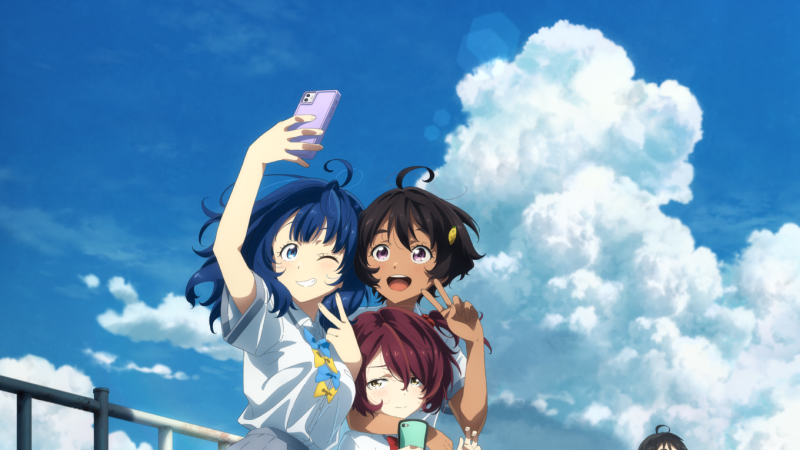
Precious memories almost always involve friendships or romance instead of monetary achievement or fame or other forms of external achievement. The lesson here is obvious and repeated to the point of cliche: the time we spend with those we love matters more than any worldly achievements when death comes for us. Despite this cliched lesson, we tend to ignore it, sacrificing our time with loved ones in return for wealth, fame, and power. Only when we reach the end (however you define the end), do we realize exchanging “precious memories” for these achievements isn’t a worthy exchange. Only by then it is too late or almost too late. So too our high-school characters realize this near graduation. There’s something about our psyche that takes events for granted until its too late–until someone dies or otherwise falls out of our lives. Unless we consciously train to appreciate making precious memories out of every-day life, we don’t.
Memories themselves require us to recall the past in the present. Memories only exist in the present moment, recalled from where our impressions and incomplete storage of the event exists in the brain. What’s more, whenever we access a precious memory, we alter that memory (Paul, 2012):
A memory is not simply an image produced by time traveling back to the original event — it can be an image that is somewhat distorted because of the prior times you remembered it.
We recall the previous time we remembered, not the original memory, until the memory could become a false recollection. In this way, we convince ourselves an event happened that hadn’t or feel emotions that we didn’t at the time of the event. Because of this, friends can remember events differently, as they recall and “save” that remembrance. Now, this reality of memory might seem to make precious memories seem less precious. After all, they keep changing and could be distorted. However, as you remember and re-remember, memories can become more positive. The most important core of the memory can improve as you polish it. When we distort our memories, we can distort them toward the positive (or to the negative if we aren’t careful), which would inform our character to be more positive (or, again, more negative). Precious memories become jewels which shape our behavior. And sometimes we need to delude ourselves a bit about the past in order to make the future better. It isn’t a lie. Rather, like jewels, we have to grind down and polish the flaws within the memories until they are pure in their importance for us.
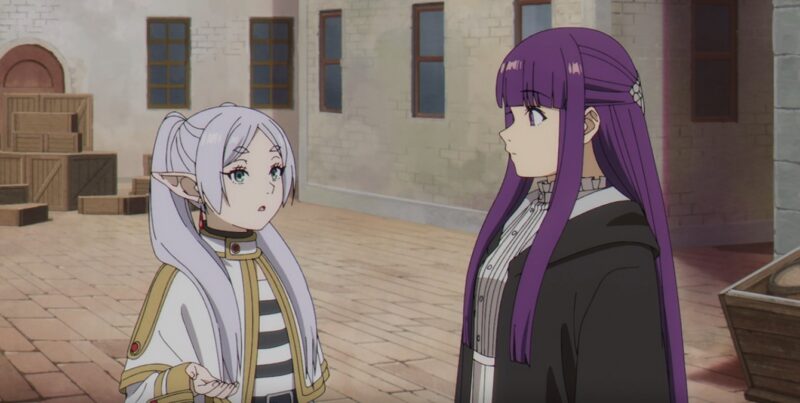
Frieren: Beyond Journey’s End builds its story around the importance of precious memories. Frieren, as an elf, has outlived her companions after they defeated the demon lord together. She retraces their journey together and revives her memories along the way, memories she had buried and almost forgotten. She realizes what she lost, and she makes new memories with her student and new friends. Hanging over everything is the fact they too will die while Frieren will live on. Frieren deluded herself about her first journey, pushing the memories aside as not important, only to realize just how important they were when it was too late. In the process of overwriting memories, we can, sometimes, have the true memories revive through a place, a photograph, or some other trigger which strips away all the layers we place on that memory. Frieren discovers how her journey shaped her, and she becomes aware of how her current retracing is shaping her, creating new precious memories that link with her old. The anime is truly one of the greats with how thoughtful, funny, sad, and overall bittersweet it handles Frieren’s experience of remembering. Frieren underlines just how precious precious memories truly are, even when you understand you rewrite them. Frieren struggles quietly with her emotions, coming off as detached while clutching the gems of her past close. Her closed nature differs from the often cringy way precious memories are expressed.
Saccharine expressions of emotions and memories, however, aren’t bad. Cringy is just another word for uncomfortable. Sometimes there’s no other way to express how important something is or how it matters except in a cringy way. Words have limits and often fail us. Over-the-top expressions of emotions point toward these limits because even a stereotypical scene of a character yelling his or her feelings still falls short of that internal experience. Fictional characters can do what we cannot. The cringe-factor comes from how we wish we could express those feelings in a similar way at one time or another. It’s not that teens feel emotions stronger than adults; rather, adults just have more layers of how emotions surrounding memories and situations ought to be expressed–most often not expressed. Frieren represents this problem against her younger companions. Cringy behavior, when it comes to the limits of expressing something deeply important, is natural, so don’t fret too much about it. Cringe can honor an intense memory.
Oshi no Ko also focuses on precious memories. The main character, Ai Hoshino, drives the story forward through her children’s memory of her. These precious memories drive a revenge story, so not all memories take a positive or bittersweet turn as in Frieren and in many other stories.
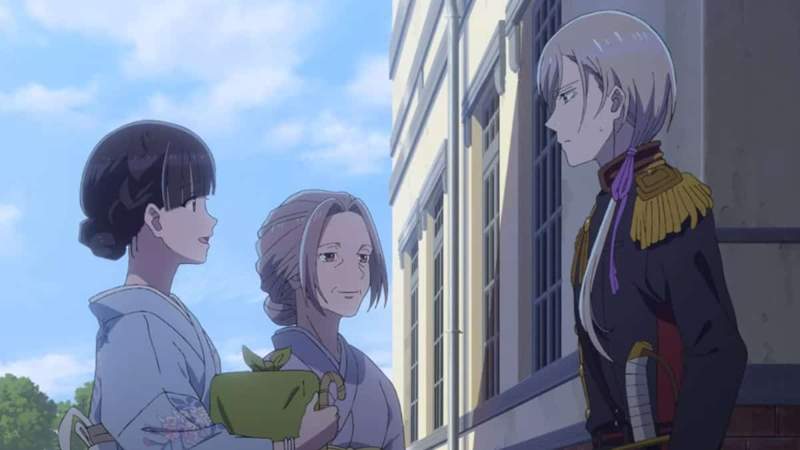
Precious memories can include our memories of video games, movies, anime, and manga. Long-time readers are likely tired of me always repeating this, but here it is anyway: stories matter. Stories shape us and create memories that matter. Those memories of stories make us who we are. Stories come to us at certain times in our lives, guiding us or helping us through trying situations. These stories become precious and, unlike memories of life-events, we can revisit these stories. The story may be the same, but because we change we come away from a familiar story with new insights. In the ancient world, foundational literature like the Iliad and Kojiki and the Torah were read and re-read (or told and retold) throughout life. These stories sat at the foundation of education, informing and shaping memory and character. Because these stories can be revisited, we don’t have to same risk of rewriting our memories of them. Despite the value of stories becoming precious memories, we have a strange idea as moderns that stories aren’t important. Some of this comes from how our stories are seen as entertainment and not instruction. But all stories instruct, for better or worse. I have many precious memories about Inuyasha, Samurai Champloo, Spice and Wolf, Eureka Seven, Chrono Trigger and many, many books. Some of the memories relate to the timing these stories entered my life. Inuyasha and Samurai Champloo came into my life when I was working on my first degree and was stressed to the hilt. It was a time of change, and both were my true introduction to anime. Final Fantasy VI and Chrono Trigger came into my teen years and helped shape my understanding of stories and the greatness video games as a medium can achieve. Each time I revisit these stories, I create new precious memories because I am different each time. Spice and Wolf, the first version, came to me when I was suffering from my first great heartbreak. Even painful memories can be precious. In fact, painful events can reshape you in positive ways. Spice and Wolf and Eureka Seven helped me heal and became precious memories of sanctuary and help in a dark time. They remain important stories for me, which I revisit every so many years.

The theme of precious memories taps into the Zen Buddhist idea of impermanence. Each moment comes and goes, gone forever. Each moment is a tick toward death, a tick that cannot be recovered. Zen would argue that all memories ought to be precious. All moments of our lives ought to be precious. But as humans, we don’t value each moment. We don’t appreciate our loved ones, our health, our favorite stories, until they are gone. Zen tells us, along with Stoicism, Bushido, and Christianity and most of the great philosophies, that we need to embrace death so we can hold onto each moment with more appreciation. Embracing death is merely remembering impermanence, reminding ourselves that this moment is passing, never to return, so pay attention. Don’t be distracted by Tiktok when talking to someone. Do whatever you are doing with the awareness that when done it is done forever. Even if you revisit a story, you are different and the moment is gone. We ought to make as many memories as we can precious because each moment of our lives is precious. It’s a high, impossible goal, that works against our nature. Trying to remember death, trying to treasure memories, and trying to make them in the first place is all we can do. Trying is a success.
So how do we make precious memories? Do what you enjoy with people you enjoy mindfully. Get off social media, put your phone away, and focus on the moment. Put all of yourself into it as anime characters do. Savor the manga you read, the anime you watch, the video games you play. Pay attention to every day life and find its meaning. Memories become precious when they have meaning.
References
Paul, Maria (2012) Your Memory is like the Telephone Game. Northwestern Now. https://news.northwestern.edu/stories/2012/09/your-memory-is-like-the-telephone-game
Shute, Nancy (2014) Memories, Putting Present in the Past. NPR. https://www.npr.org/sections/health-shots/2014/02/04/271527934/our-brains-rewrite-our-memories-putting-present-in-the-past
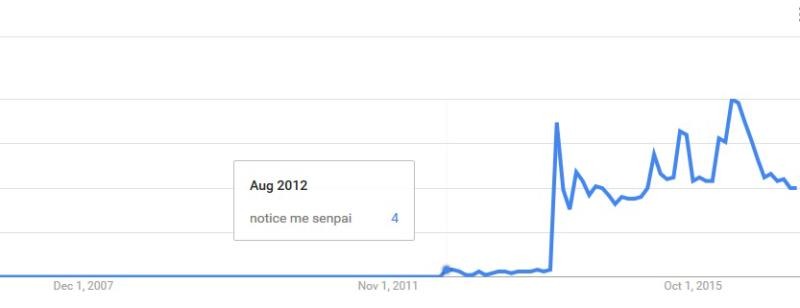
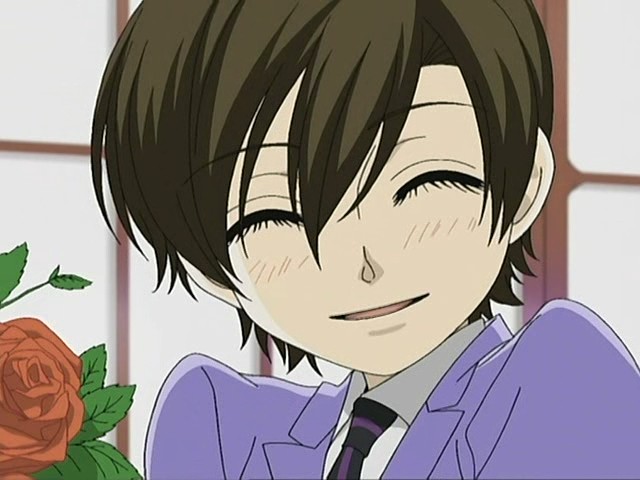
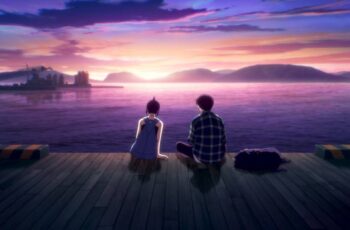



Well said. For anyone who’s watched a close friend or relative lose contact with their memories, you get a sense of how they ground an identity. Perhaps ironic then, but that over time one might do a little constructive editing is probably a good thing. Perhaps that’s what defines the passage from “cringe” to “resonance”?
As an aside, I wasn’t able to find the article at your second link. However, I did find it here (replace the “[DOT]”:
npr.org/sections/health-shots/2014/02/04/271527934/our-brains-rewrite-our-memories-putting-present-in-the-past
Please feel free to edit this.
Thanks for the link fix! I’ve updated the article with the proper link.
The memory editing is likely a good thing, and it might be a part of why people generally become happier as they age into the winter years of life.
Masterfully explored. Love it
Thank you!